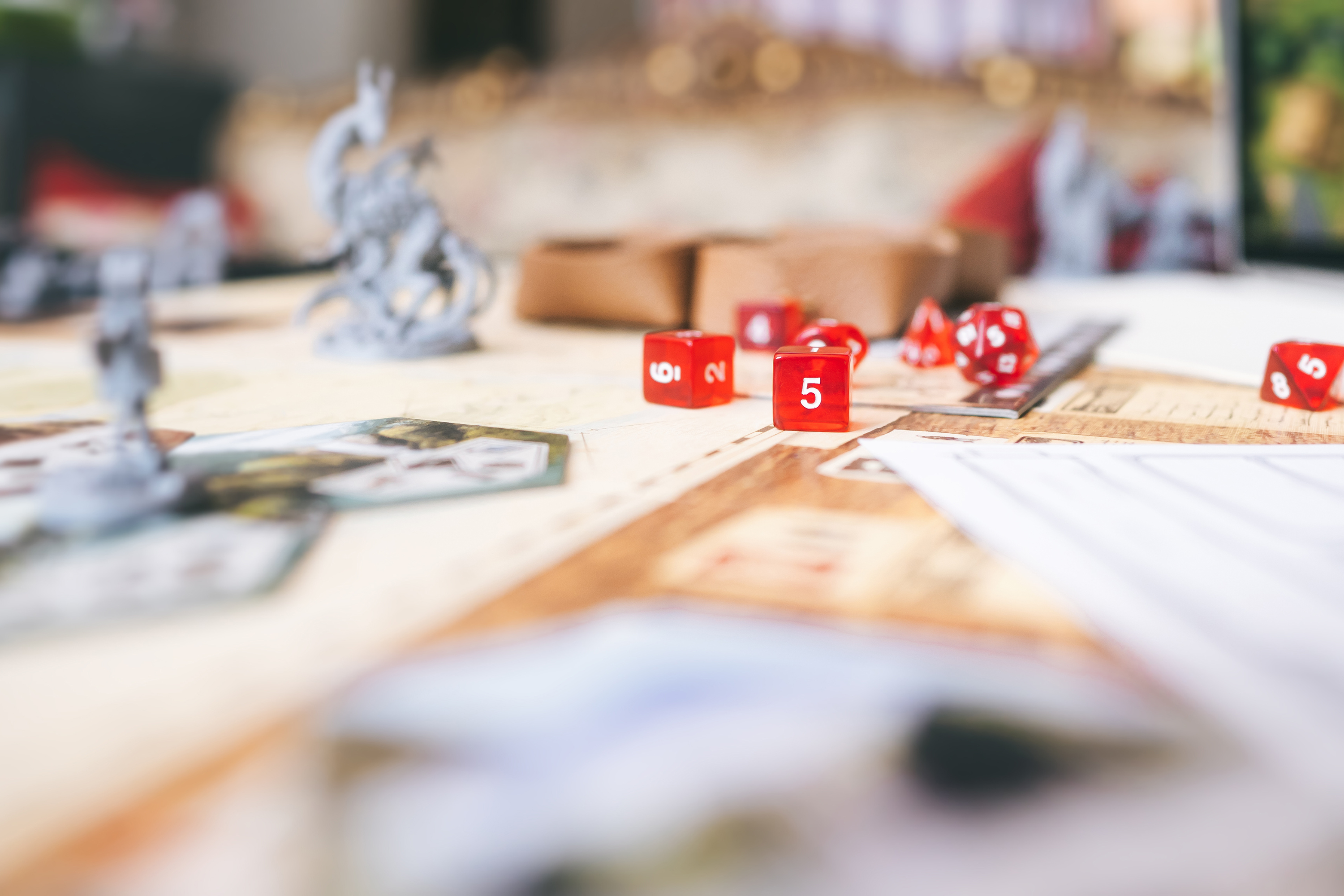I’ve mentioned before that my wife and I are both writers. What I haven’t really dug into is the fact that, though both read quite well for their ages, our kids are both way more into science and math.
Arrrggh! Why, universe, why?!
Actually, as people who both have English degrees and are still struggling to become financially comfortable adults, we’re pretty okay with the whole STEM love thing.
That being said, we believe in the power of reading, writing, and storytelling, and want to instill a love for it in our kids as well.
To that end: board games! Specifically, board games we’ve discovered that — in various ways — promote reading and storytelling.
This list is anything but exhaustive. As I’ve said before, these days there are board games out there for pretty much any type of person, and there are a lot of them. These are merely the ones we’ve found and like.
(A note: my definition of “board game” includes any type of tabletop game.)
Dixit

A game of beautifully illustrated cards. On your turn, you describe a card in your hand with a word (for example, haunting) and the other players — lets call them secondary players — must find cards in their hand that match this description as closely as possible.
All of those cards are then placed in a pile and turned over, with all of the secondary players attempting to guess which card came from the primary player. If other players choose your card, you get points for that as well.
How can a game that requires no reading, writing, or storytelling get on this list?
The beauty of Dixit is that — without any written words — it asks you to look at different pictures and assign a meaning or concept to them. What about this picture makes it “scary”? Could an illustration of bugs driving cars fit for “technology”?
In short, it does engage the storytelling part of your brain as you attempt to find ways that your illustrations might match the chosent description and confuse other players. Plus, since there’s no reading or writing, you can play it with very young kids.
Nab-It!

Our kids still don’t like Scrabble. We’re not really sure why. But for some reason we have been able to get them interested in Nab-It!.
Maybe it’s the fun of turning one word into another one. Or stealing words from other players. Whatever the reason, we love Nab-It! as a way to encourage spelling, learning new words, and so on.
Once Upon a Time

We discovered this game on vacation and our kids wouldn’t stop playing it.
Once Upon a Time is card-based, with everyone getting a variety of story points — characters, locations, plot points, magical items — and a single Happily Ever After card (i.e. the end of the story they are trying to build toward).
Two things make this more interesting:
- Players can “steal” the story from each other by using specific cards and then change the story’s direction to guide it toward “their” ending.
- The cards don’t tell the story — you do. You might have cards that say “twins,” “magic hammer,” and “castle in the forest,” but it is up to you to combine those into a believable narrative. And if the other players feel like you’re not making enough sense, they can call you on it and take the story back.
Mostly it’s a lot of silliness, but there are definitely lessons here on story structure and how different elements connect to each other.
Mad Libs

Full disclosure — we’ve never played the board game version of this. I’m adding it as a board game because that’s the intent of the list, but even traditional Mad Libs have brought a lot of fun and learning to our family.
Not only does it promote reading, as kids will be excited to read the silly things they’ve created, it educates them on parts of language and how you can use the rules of grammar to make things that are tricky and funny.
Dungeons & Dragons

There’s a reason so many writers play tabletop roleplaying games. They are essentially story machines. Each player has to create their own character, with unique traits and abilities and a backstory. The Dungeon Master has to craft an adventure for each game. And during the game, you’re basically playing a choose-your-own-adventure book with other people, as every decision impacts what happens next.
I’m choosing D&D because it is the grand-daddy of these types of games, but there are countless others out there. With an 8-year-old and an 11-year-old, we are just now getting to the point where our kids have the attention spans to play a campaign, but there are more kid-friendly versions out there.
What games have you found that bolster your kids’ reading and storytelling abilities?
